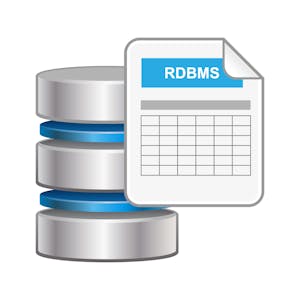Introduction to Relational Databases (RDBMS)
Are you ready to dive into the world of data engineering? You’ll need a solid understanding of how data is stored, processed, and accessed. You’ll need to identify the different types of database that are appropriate for the kind of data you are working with and what processing the data requires.In this course, you will learn the essential concepts behind relational databases and Relational Database Management Systems (RDBMS). You’ll study relational data models and discover how they are created and what benefits they bring, and how you can apply them to your own data. You’ll be introduced to several industry standard relational databases, including IBM DB2, MySQL, and PostgreSQL.
This course incorporates hands-on, practical exercises to help you demonstrate your learning. You will work with real databases and explore real-world datasets. You will create database instances and populate them with tables.
No prior knowledge of databases or programming is required.
Anyone can audit this course at no-charge. If you choose to take this course and earn the Coursera course certificate, you can also earn an IBM digital badge upon successful completion of the course.
Describe data, databases, relational databases, and cloud databases.
Describe information and data models, relational databases, and relational model concepts (including schemas and tables).
Explain an Entity Relationship Diagram and design a relational database for a specific use case.
Implement different relational model constraints.
Syllabus
Syllabus - What you will learn from this course
Week 1
Relational Database Concepts
Week 2
Using Relational Databases
Week 3
MySQL and PostgreSQL
Week 4
Course Assignment
FAQ
When will I have access to the lectures and assignments?
Access to lectures and assignments depends on your type of enrollment. If you take a course in audit mode, you will be able to see most course materials for free. To access graded assignments and to earn a Certificate, you will need to purchase the Certificate experience, during or after your audit. If you don't see the audit option:
What will I get if I subscribe to this Certificate?
When you enroll in the course, you get access to all of the courses in the Certificate, and you earn a certificate when you complete the work. Your electronic Certificate will be added to your Accomplishments page - from there, you can print your Certificate or add it to your LinkedIn profile. If you only want to read and view the course content, you can audit the course for free.
Reviews
Really great and gives a foundation of relational databases.
The course is amazing, challenging, educating and interesting.
Final quiz was hard, took several attempts to score 100%, but it was good practice!
The use of IBM services limited opportunities to study. Generally methods and common practices werre explained in great detail.
